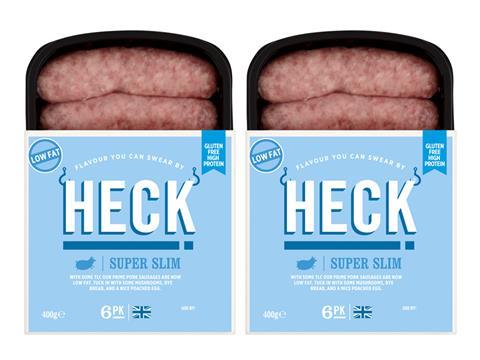
Heck is to change the artwork on packs of its sausages after it was singled out for criticism in a Times article over its pork and poultrymeat sourcing.
The brand said it would remove a cartoon image of a smiling pig from the back of its pork sausages and a chicken from the back of its chicken sausages after The Times article on Saturday said it misled shoppers by suggesting all animals in its supply chain grazed outside.
In a piece calling for clearer packaging and labelling over the method of production and slaughter of animals, The Times cited comments by environment secretary Michael Gove, who pledged to reform labelling rules “to help ensure that consumers were not misled about farm animal welfare standards”.
The article also took issue with Heck’s claim to make sausages in “small batches”. But in a robust defence of the brand, co-owner Andrew Keeble insisted shoppers had not been misled, with the decision to change its packaging made in a bid to distance itself from the article’s criticism.
“It wouldn’t be in our interest to deceive anyone,” Keeble insisted, adding the brand had not received any complaints from consumers. “Everything has been signed off by trading standards. We are governed by legislation so there is no way we would try to mislead,” he said.
“We visit all of our farms and suppliers, and it’s all about the husbandry, rather than the fact a pig was raised indoor or outdoor. We are ex-pig farmers ourselves, we know what we’re looking for, and we still make our sausages in small batches of no more than 50 kilos each,” he added. “British animal welfare is the best in Europe.”
Keeble said Heck had also updated its FAQ’s on its website to include the statement that its pork was a “mixture of outdoor and indoor bred pork”.
It added: “In the UK, about 60% of pork comes from indoor reared and 40% from outdoor. Because we don’t specify outdoor or organic pork, we have a mixture in our sausages.”
Any compulsory move to include labelling carrying the method of production and slaughter of animals would also add extra cost to food, while a ban on indoor pig production would not be viable, Keeble said.
“Even if we were told we could only use outdoor-reared pork, there isn’t enough adequate land in the UK and probably not enough willing farmers,” he said. “We’re also not self-sufficient in pork. If we banned all-indoor reared pigs, you would put a huge amount of British farmers out of business.”







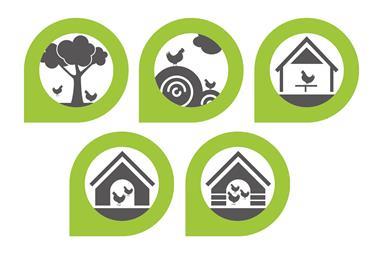
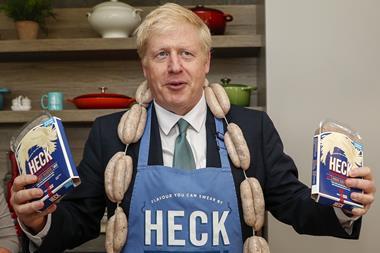
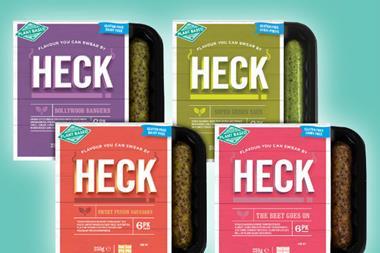
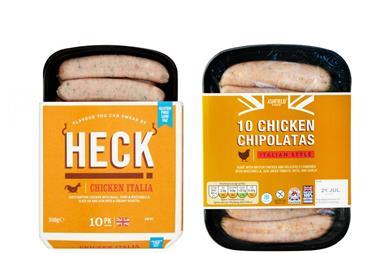
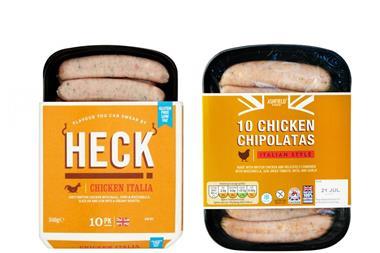
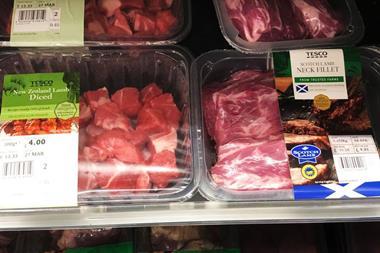
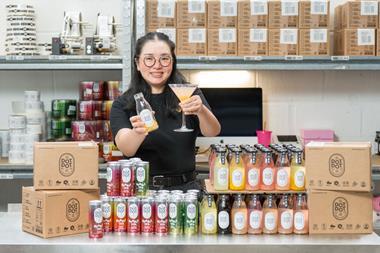

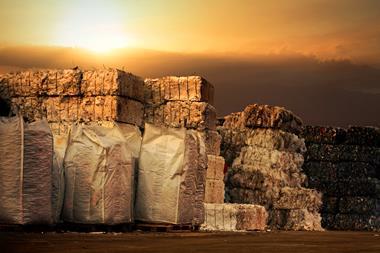

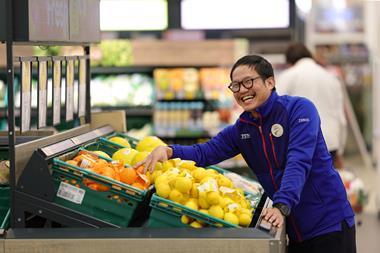
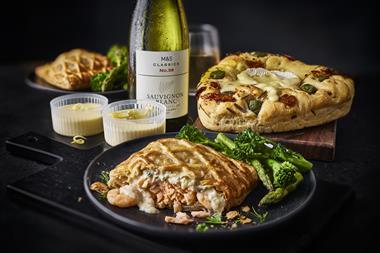
No comments yet